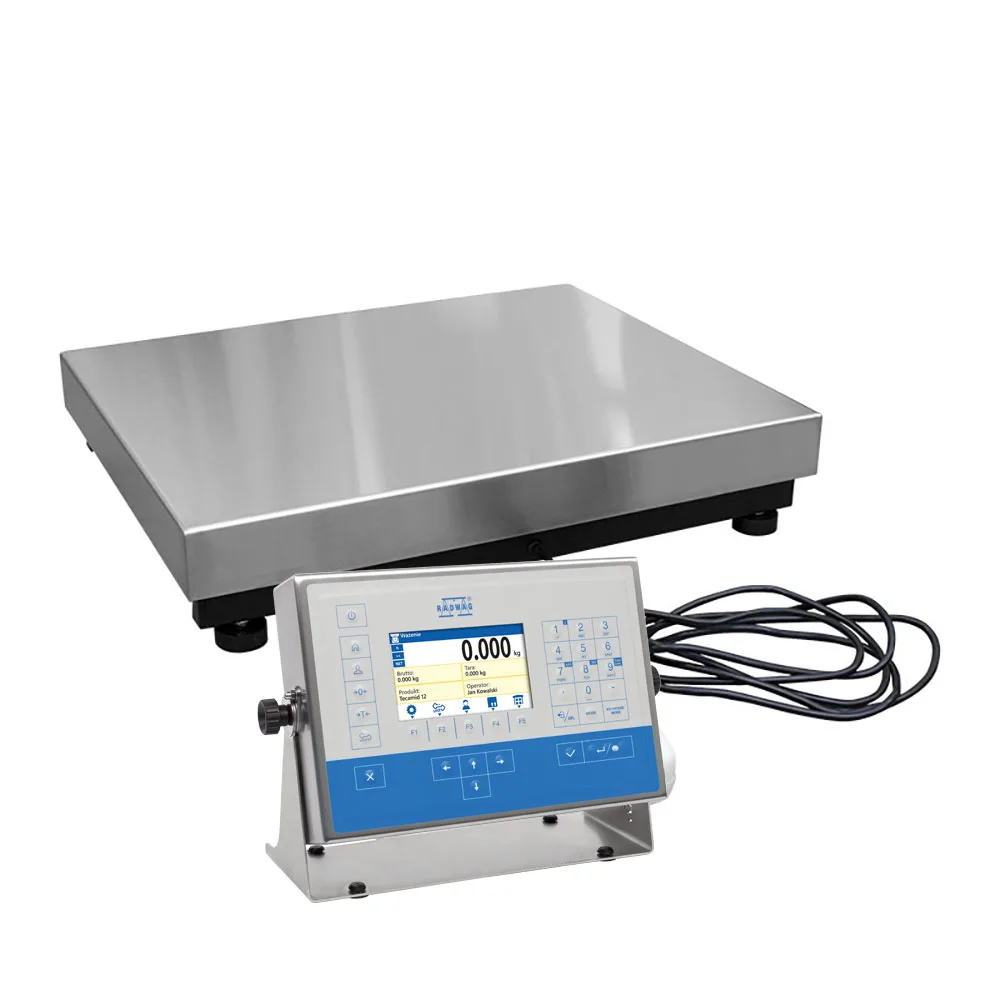Modern weighing technologies have transformed the landscape of precision measurement, enabling industries to achieve exceptional accuracy and efficiency in critical processes. From enhancing quality control to optimizing production and ensuring compliance with regulatory standards, these technologies are indispensable in today’s world. Whether it’s the delicate precision required in laboratories or the robust durability needed in industrial environments, weighing systems have become a cornerstone of modern operations.
Types of Weighing Equipment
1. Digital Scales
Digital scales are at the forefront of precision measurement, combining advanced electronic technologies with user-friendly features.
- Advanced Electronic Measurement Devices: These scales utilize cutting-edge sensors and microprocessors to deliver highly accurate readings across diverse weight ranges.
- High Precision Across Multiple Weight Ranges: Ideal for applications requiring fine measurements, such as laboratory experiments or pharmaceutical dosing, as well as heavier commercial and industrial needs.
- Versatile Applications: Found in laboratories, retail environments, and industrial settings, digital scales cater to various operational demands.
- Key Features:
- Digital Displays: Bright, easy-to-read screens ensure clarity in measurement readings.
- Data Logging Capabilities: Users can track and store measurement data for analysis, ensuring traceability and consistency.
- Network Connectivity: Enables seamless integration with larger systems for real-time data sharing, enhancing operational efficiency.
2. Industrial Scales
Industrial scales are designed to thrive in demanding environments, offering unmatched durability and reliability.
- Robust Construction: Made with materials like stainless steel or alloy composites to endure rough handling and heavy loads.
- Suitability for Harsh Conditions: Built to withstand extreme temperatures, moisture, dust, and other environmental challenges commonly found in manufacturing or logistics sectors.
- Applications:
- Quality Assurance: Ensures products meet specified weight requirements, reducing errors and waste.
- Inventory Management: Accurate weight measurements streamline stock control and resource allocation.
3. Process Weighing Equipment
This category is essential for industries requiring continuous weight monitoring throughout production processes.
- Integrated Systems: Designed to seamlessly merge with production lines, these systems provide uninterrupted weight tracking.
- Real-Time Weight Data: Crucial for immediate process adjustments, improving efficiency, and reducing downtime.
- Applications: Predominantly used in industries such as chemicals, pharmaceuticals, and manufacturing to maintain consistent product quality and optimize production.
Specialized Weighing Solutions
1. Load Cells
Load cells are the backbone of modern weighing systems, converting mechanical force into electrical signals for precise measurements.
- Technology Highlights: Utilizing strain gauges or piezoelectric components, load cells deliver high-resolution weight data.
- Key Applications:
- Structural Engineering: Monitoring stress and load distribution in bridges, buildings, and other structures.
- Transportation: Measuring vehicle weights to ensure safety and compliance with road regulations.
- Industrial Automation: Providing critical data for automated process controls in factories.

Platform Scale
2. Weighbridges
Weighbridges are large-scale platforms designed for weighing heavy vehicles like trucks, trailers, and mining equipment.
- Durable and Reliable: Constructed to handle immense loads and frequent usage.
- Applications Across Industries:
- Transportation Logistics: Ensures vehicles adhere to weight restrictions, preventing overloading and accidents.
- Mining Operations: Tracks material transport for operational transparency.
- Agriculture and Waste Management: Evaluates commodity loads and waste volumes for economic and environmental assessments.
Sector-Specific Weighing Applications
1. Agricultural Weighing Solutions
Weighing technologies in agriculture enable accurate measurement for better resource management and profitability.
- Crop Yield Measurement: Helps farmers assess production output, ensuring accurate reporting and planning.
- Livestock Monitoring: Provides weight tracking for animals, critical for health management and market readiness.
- Grain Storage and Commodity Assessment: Ensures proper handling, storage, and trading of agricultural goods.
2. Health and Pharmaceutical Scales
In the medical and pharmaceutical fields, precision is paramount.
- Ultra-Precise Technologies: Designed for tasks where even slight discrepancies can have significant consequences, such as medication dosing or lab research.
- Applications:
- Supporting pharmaceutical manufacturing processes.
- Enabling compliance with stringent regulatory frameworks to uphold patient safety and product quality.
3. Food Industry Weighing Equipment
Hygiene and precision are critical in the food industry, where weighing systems play a pivotal role.
- Contamination Prevention: Equipment features hygienic designs and materials like stainless steel to maintain food safety.
- Ingredient Portioning: Ensures consistent product quality and taste.
- Regulatory Compliance: Supports adherence to strict food safety standards.
Technological Integration in Weighing Systems
1. Electrical Systems Installation
Efficient weighing systems require seamless integration with electrical setups.
- Accurate Power Supply and Signal Transmission: Ensures uninterrupted functionality and reliability of weighing equipment.
- Minimizing Electromagnetic Interference: Protects the system from disruptions, enhancing precision in challenging environments.
2. Renewable Energy Hybrid Systems
Weighing technologies are now vital in the renewable energy sector, supporting sustainability initiatives.
- Applications:
- Monitoring component weights during installation in wind and solar energy projects.
- Optimizing performance and facilitating maintenance for long-term efficiency.
3. Building and Engineering Scales
These scales contribute to the safety and integrity of construction and infrastructure projects.
- Structural Weight Assessment: Ensures materials meet design specifications.
- Material Verification: Prevents waste and ensures quality control in construction processes.
Weighing technologies lie at the intersection of innovation, precision, and industry-specific requirements. As industries evolve and technology advances, these solutions are becoming more integrated, accurate, and indispensable across sectors. Whether it’s revolutionizing agriculture, improving healthcare, or ensuring compliance in industrial processes, weighing systems remain a cornerstone of progress and reliability.
[su_tabs][su_tab title=”Tab name” disabled=”no” anchor=”” url=”” target=”blank” class=””]Tab content[/su_tab] [su_tab title=”Tab name” disabled=”no” anchor=”” url=”” target=”blank” class=””]Tab content[/su_tab] [su_tab title=”Tab name” disabled=”no” anchor=”” url=”” target=”blank” class=””]Tab content[/su_tab][/su_tabs]


